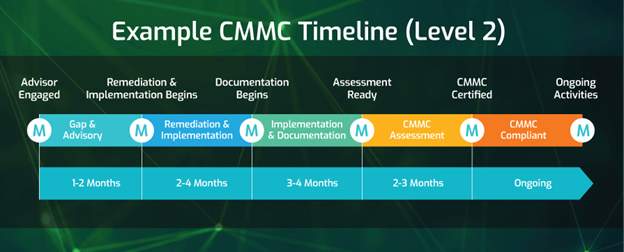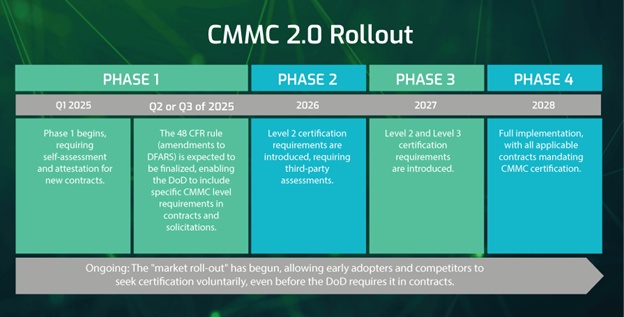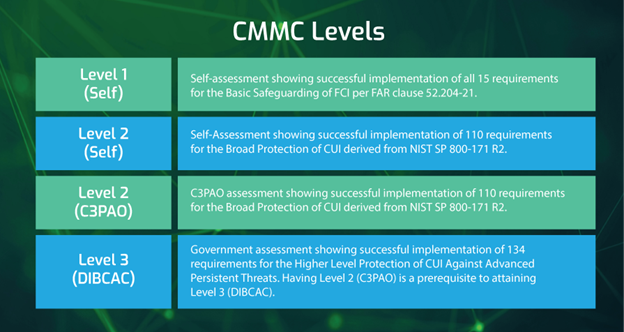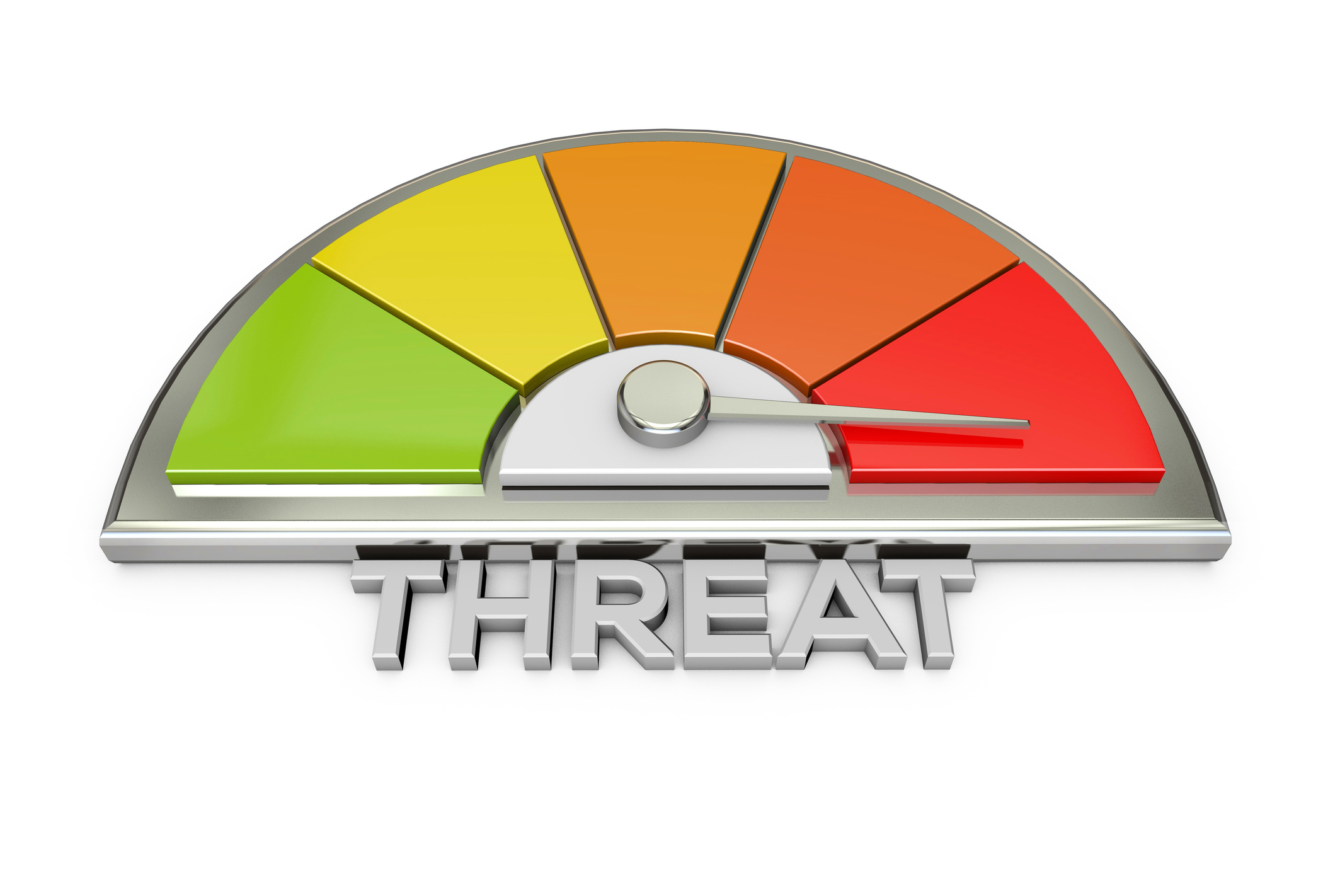Understanding the CMMC Program
Are you one of the 220,000+ Defense Industrial Base (DIB) contractors that will potentially have to comply with the Cybersecurity Maturity Model Certification (CMMC) program? Failing to meet CMMC requirements can result in immediate and long-term business risks, particularly for organizations in the Department of Defense (DoD) DIB supply chain.
Without certification, companies will become ineligible to bid on or renew DoD contracts, directly impacting revenue and growth opportunities. Additionally, lack of compliance increases exposure to cyber threats, leading to potential data breaches, legal liabilities, reputational damage, and loss of customer trust.
Let’s review the CMMC program below so you can understand how to prepare for business success.
What is the CMMC Program?
Cybersecurity is a top priority for the DoD, as the DIB faces increasingly frequent and complex cyberattacks. To strengthen DIB cybersecurity and better safeguard DoD information, the DoD developed the CMMC Program to assess existing cybersecurity implementations of its DIB partners. The current CMMC model is a Tiered model of practices and processes, required assessments, and contract implementation intended to protect Federal Contract Information (FCI) and Controlled Unclassified Information (CUI).
CMMC Engagement Lifecycle
The CMMC drumbeat for DIB contractors has been going on for many years. Given the false starts, many in the industry have taken a lax stance on preparing for the certification. We’re not here to finger point – businesses are juggling quite a few different regulatory requirements and until they hit front and center, many watch and wait.
If you’re reading this today, check out the engagement lifecycle below to see where you land in the CMMC readiness state.

Why Obtain a CMMC Certification?
The CMMC program aims to ensure that DoD contractors and subcontractors implement and maintain robust cybersecurity measures to protect CUI and FCI. Obtaining CMMC certification is crucial for those seeking to work on DoD contracts, as it ensures compliance with cybersecurity requirements and protects sensitive information.
CMMC certification is often a prerequisite for being awarded DoD contracts, especially those involving sensitive information. By obtaining a CMMC certification, the Organization Seeking Certification (OSC) demonstrates to potential clientele that specific security benchmarks have been met, providing greater assurance that the data will be protected. Public trust is paramount in today’s marketplace and a CMMC certification helps quickly gain credibility.
CMMC Implementation Timeline
CMMC Level 2, which applies to contractors handling CUI, will be required for DoD contracts in a phased rollout. The first phase will start in mid-2025, and full implementation is expected by 2028. This means defense contractors have limited time to prepare for compliance. Organizations that handle CUI should begin their certification journey well before these deadlines to ensure they can continue to bid on and win DoD contracts as the requirements come into effect.

Understanding CMMC Requirements
Currently, Federal contracts (including defense contracts) involving the transfer of FCI and/or CUI to a non-government organization must follow specific requirements set forth in Federal Regulations and by the National Institute of Standards and Technology (NIST). The transfer of FCI is guided by the Federal Acquisition Regulation (FAR) clause 52.204-21, Basic Safeguarding of Covered Contractor Information Systems while the transfer of CUI is guided by NIST Special Publication (SP) 800-171 Rev. 2. In addition, defense contractors must confirm that any Cloud Service Providers (CSPs) used by the contractor to handle CUI meet the Federal Risk and Authorization Management Program (FedRAMP) Moderate Baseline or the equivalent requirements. It also requires defense contractors to flow down all the requirements to their subcontractors who process, store, or transmit CUI.
The CMMC Certification Process
The formal process of obtaining a CMMC certification can take a year or longer, depending on the system’s maturity and organization size. Before beginning, it is important to understand that commitment to the process is crucial. In some cases, delays can derail the process and require starting over.
CMMC Level Selection
An Organization Seeking Assessment (OSA) will select the CMMC level it desires to attain based on the requirements and a CMMC Third-party Assessor Organization (C3PAO) where necessary. Once the CMMC Program is implemented, a DoD solicitation will specify the minimum CMMC Status required to be eligible for award. The following CMMC levels are outlined below:

Scoping
The OSA must identify which information systems are within the scope for the assessment, including any systems or services provided by External Service Providers (ESPs). These systems will then be broken down into asset categories: Contractor Risk Managed Assets, Security Protection Assets, and Specialized Assets.
Assessment and Affirmation
An OSA must conduct an assessment on the system trying to attain certification. This assessment will verify whether all applicable requirements per chosen level are met. Once an OSC has satisfied all requirements to achieve the desired Final Level status, they must continue to repeat the process annually to keep their status in good standing.
For levels 2 and 3, a Plan of Action and Milestones (POA&M) closeout assessment is performed. This CMMC assessment evaluates only the requirements that were not met and identified in the initial assessment. A POA&M closeout assessment must be performed to confirm the closing of a POA&M within 180 days of the Conditional CMMC status Date.
Flow-Down
If the OSA employs subcontractors to fulfill the contract, those subcontractors must also have a minimum CMMC Status as specified in the DoD requirements.
Working CMMC Experts
A C3PAO is your partner in guiding and assessing the system against the defined framework and relevant overlay. Experienced assessors can guide you in the process and ultimately assess your system to determine any potential risk that needs to be addressed.
The CMMC Marketplace offers a list of companies that can support your journey.
CMMC Advisors
CMMC advisors, also known as Registered Provider Organizations (RPOs), guide organizations through the CMMC compliance process, helping them understand and meet the cybersecurity requirements for doing business with the DoD. These advisors can:
- Conduct gap analyses to identify areas where an organization’s current cybersecurity posture falls short of CMMC requirements,
- Provide guidance and support for implementing the necessary cybersecurity controls and procedures,
- Assist in developing critical documentation, such as System Security Plans (SSPs) and POA&Ms, which are essential for CMMC compliance,
- Help organizations prepare for CMMC assessments, including gathering evidence and addressing any findings,
- Provide ongoing support to help organizations maintain their CMMC compliance, and
- Help organizations understand and implement the requirements outlined in NIST SP 800-171, which is the foundation for CMMC compliance.
CMMC Assessors
CMMC assessors, specifically Certified CMMC Assessors (CCAs), are individuals authorized by the Cyber AB (Cybersecurity Maturity Model Certification Accreditation Body) to evaluate and assess organizations against the CMMC framework. They play a crucial role in the CMMC ecosystem, ensuring that DoD contractors and suppliers meet the necessary cybersecurity standards. They work under the guidance of C3PAOs, which are organizations authorized by the Cyber AB to perform official CMMC assessments. Assessors can:
- Conduct formal evaluations to determine if an organization meets the security requirements of its target CMMC level,
- Interview key personnel during the assessment to evaluate their understanding of security policies and technical controls, and they collect evidence to verify compliance with CMMC practices,
- Examine an organization’s policies, procedures, and technical controls to determine whether they meet the requirements of the CMMC standard,
- Provide a report outlining the findings after an assessment, including areas where the organization is compliant and areas where improvements are needed,
- Ensure the accuracy and completeness of assessment data. They must also be trained in the CMMC assessment process.
Conclusion
The decision to become CMMC certified is not simple, but it can help a company achieve certain goals that may otherwise be impossible. Once the decision has been made, it’s important to select a partner C3PAO who is experienced and can help you navigate the process to minimize cost and effort; however, the onus remains on the organization to successfully complete the process. Obtaining certification is an important step in servicing potential DoD clientele.
Should you have questions about your cloud and cybersecurity readiness, please reach out to us at Info@fortreum.com or contact us at https://fortreum.com/contact/
For more information about the CMMC Program, visit:
About Fortreum:
We started with a mission to simplify cloud and cybersecurity challenges for our customers. With an extensive track record spanning nearly a quarter of a century across Public and Private Sectors, we possess a keen dedication to solving our customers complex cloud and cybersecurity challenges. Our industry commitment extends to supporting and fostering the development of future cybersecurity experts within our communities. We encourage you to investigate our services further to learn how to leverage cybersecurity as a business enabler.











